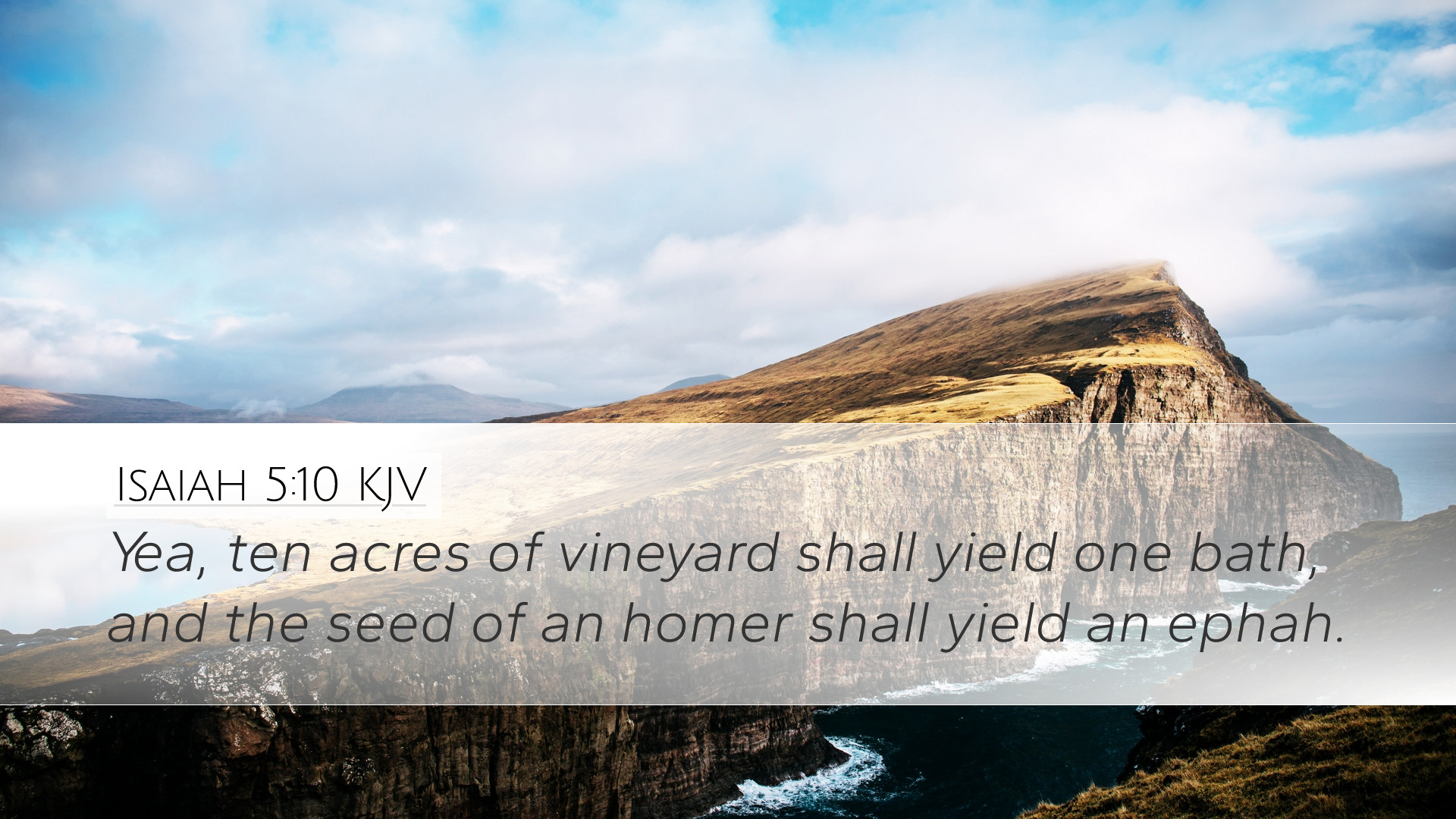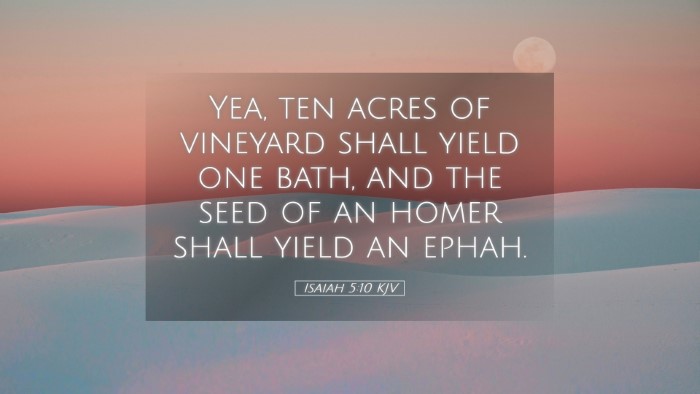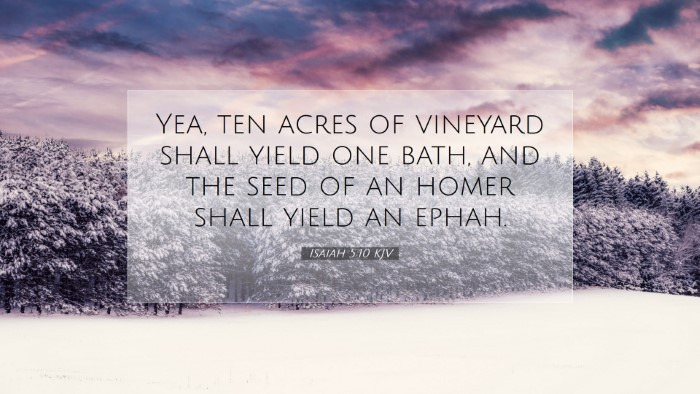Commentary on Isaiah 5:10
Verse: "Yea, ten acres of vineyard shall yield one bath, and the seed of an homer shall yield an ephah." (Isaiah 5:10, KJV)
Introduction
This verse serves as a vivid metaphor illustrating the judgment of God upon the people of Israel for their unfaithfulness and unfruitfulness. The imagery of a vineyard, a significant symbol in the Scriptures, establishes the context for understanding the spiritual barrenness that results from disobedience to God's commands. In this commentary, we will synthesize insights from public domain sources to unpack the depth of this message.
Contextual Analysis
The prophet Isaiah, in the preceding verses, begins with a song about the Lord's vineyard (Isaiah 5:1-2). This vineyard, representing the house of Israel, was cultivated with care and expectation of fruitful yield. However, the reality of its production—measured in a shocking understatement of yield—reflects Israel's spiritual state.
Matthew Henry's Insights
According to Matthew Henry, the verse emphasizes the scarcity of blessing which is a direct result of disobedience. He refers to the "ten acres" yielding "one bath" as an ironic depiction of the futility of their labor. A "bath" is a small measure, illustrating that despite a large investment in what should have been a bountiful season, the outcome is tragically minimal. This serves to highlight how God’s judgment leads to a cursed land.
Albert Barnes' Commentary
Albert Barnes elaborates on the agricultural symbolism, asserting that the imagery resonates deeply with the agrarian society of Israel. Vineyards were symbols of prosperity, yet the productivity described here—a total failure in agricultural terms—mirrors the spiritual desolation of the nation. He notes that the prophetic word conveys that God's hand was against them, resulting in poor yields, which serve as a stern reminder of divine displeasure.
Adam Clarke's Perspective
Adam Clarke offers a detailed exploration of the metrics mentioned in this verse. He points out that the specific measurements of "ten acres" and the yield of a "homer" (a quantity of seed) yielding only an "ephah" (a lesser measurement of grain) accentuates the text's emphasis on loss. Clarke suggests that God likens their unfruitfulness to poor farming, mirroring the nations' spiritual barrenness and lack of righteousness, essential for divine favor.
Theological Implications
The metaphor of the vineyard invites deeper theological reflection. The yield and its decrease represent not only God’s judgment but also His expectation of moral and spiritual fruitfulness from His people.
- Divine Expectations: God’s care and investment in Israel implied expectations of fruitfulness (Isaiah 5:1-2).
- Judgment and Consequences: The diminished yield serves as a stark reminder of consequences resulting from disobedience.
- Spiritual Barrenness: The imagery illustrates a broader theological truth; when believers stray from righteousness, they too may find their lives lacking genuine fruit, as described in Galatians 5:22-23.
Practical Application
For pastors, students, and theologians, Isaiah 5:10 beckons a call to reflection regarding personal and corporate faithfulness. Each individual or congregation must examine its own fruitfulness in alignment with God’s expectations.
- Self-examination: Are we cultivating the virtues of the Spirit in our lives?
- Community Engagement: Does our church express the love of Christ effectively within our communities?
- Stewardship of Resources: How do we manage the gifts God has given us in service to others?
Conclusion
Isaiah 5:10 stands as a sobering reminder of the consequences of spiritual neglect. With the insights provided by Matthew Henry, Albert Barnes, and Adam Clarke, this commentary urges reflection on our personal lives and communal practices as believers. In an era where proliferation and success are often equated with divine favor, the caution from Isaiah prompts a return to the essentials of faithfulness, obedience, and spiritual productivity.


